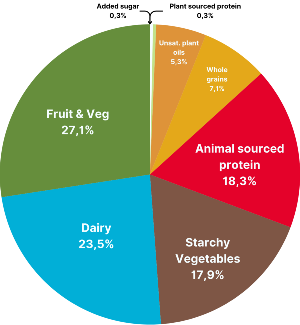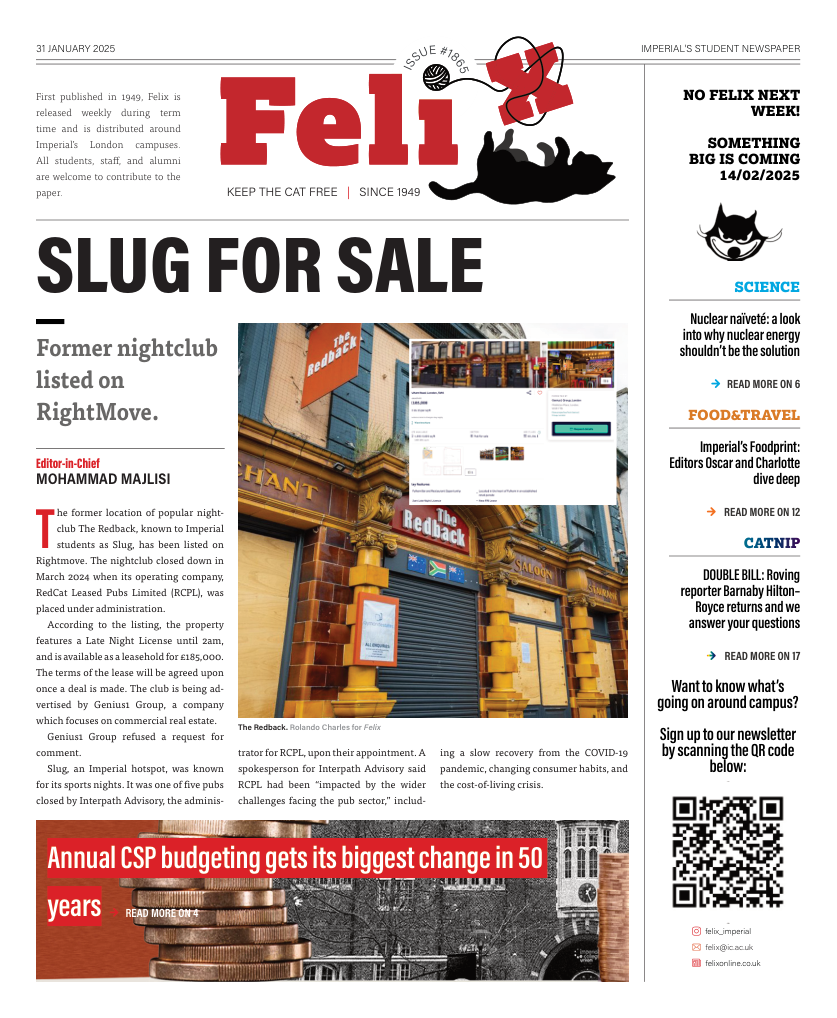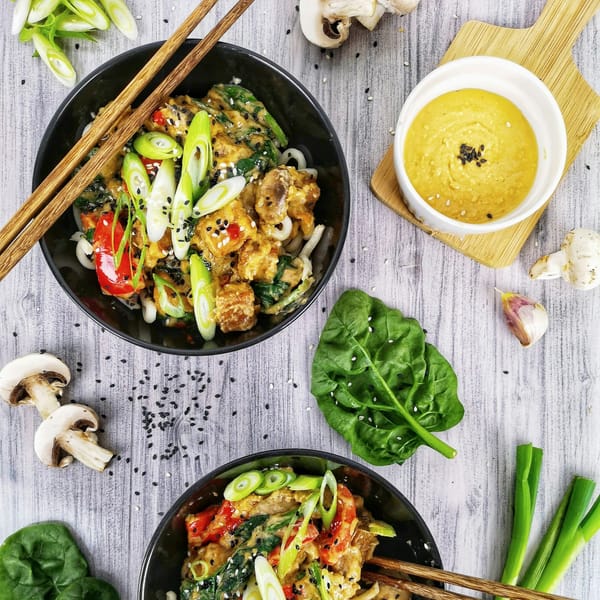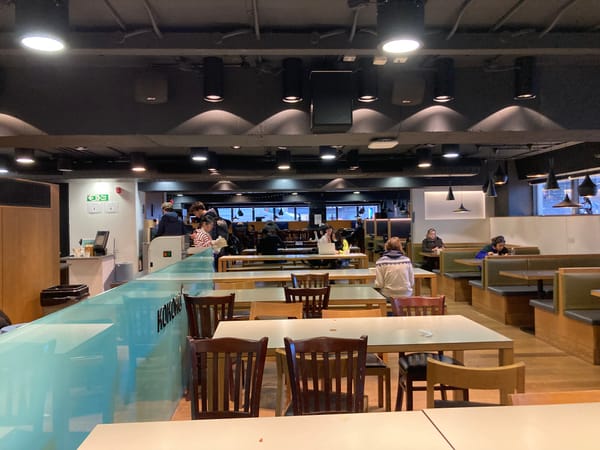Imperial’s Food-print
Imperial College’s reports on the food items purchased in 2022–24 reveal their environmental and food footprint, and the changes they’ve initiated.
Back in November 2024, Felix asked Imperial to share what Taste Imperial has been buying between 2022 to 2024. In December, Felix received the data encompassing each item purchased and its quantity. Since then, 18,000 rows of data were categorised into food groups and used to conduct the analyses below. To simplify the outcomes, many items were grouped into generic names such as “Other fruit” and “Animal-sourced protein,” thereby limiting the depth of the analysis. Ready meals particularly could not be excavated for their ingredients and thereby are only considered as non-ingredient items. Further limitations to the data analysis involved the automation of calculating the weight of the item, not taking into account the packaging weight. As quantity was not a good indication of the volume purchased, 76% of all items’ masses were successfully computed. Hence, take the analysis with a pinch of salt… or maybe take it without any salt at all – we see what you’ve been eating!
The food perspective
The optimal diet to maximise the health of the individual focuses on quality whole and unprocessed foods, which, in our current state of society, are not found in ready meals or mass-produced dishes. This diet, presented by the EAT-lancet commission, can be qualitatively described as 50% vegetables, 15% whole grains, 12.5% plant-sourced protein, and about 12.5% unsaturated plant oils such as rapeseed oil or olive oil. Dairy and animal sourced protein are recommended to be a minor sliver of the optimal diet, yet still essential to avoid nutrient deficiencies and maintain bodily functions. Added sugar and starchy vegetables are recommended to be eaten sparingly. The lancet-diet does not restrict any foods, a theme common to most diets, however, highly processed foods such as energy bars or snacks, which harm the body more than fuel it, can be omitted.

Imperial College London’s purchases of ingredients and ready meals from 2023-2024 show that roughly a quarter of ingredients purchased were fruit & vegetables, half of the recommendation by the Lancet-commission. This calls for a push for more fruit & vegetables, especially to buy free-hand adjacent to the apples, bananas and pears.
Less than 1% of ingredients are added sugar, however this excludes the sugar in ready meals and ready made pastries commonly found in cafés around campus.
While there is more than the recommended supply of dairy, starchy vegetables and animal sourced protein, the plant sourced protein lays at 0.3% of the supply, as 450kg of tofu and 130kg of soy milk were purchased. In comparison, 9,570kg of farmed fish, 3,820kg of lamb and mutton, 6,000kg of beef, 18,990kg of pig meat and 42,880kg of poultry were supplied to the university. Though plant-sourced protein grew by 47% from the previous year, animal sourced protein grew by 41%, suggesting no shift to plant-sourced protein, only an increase of supply.










